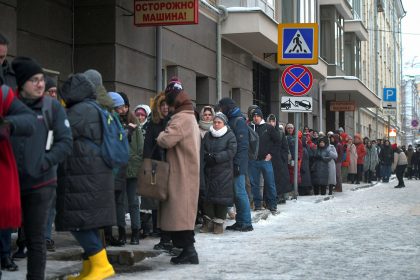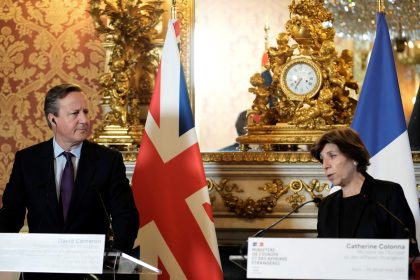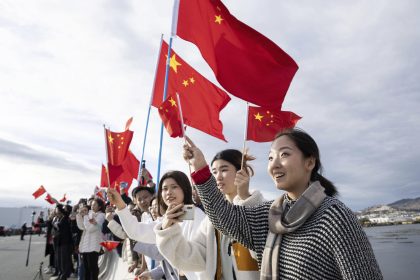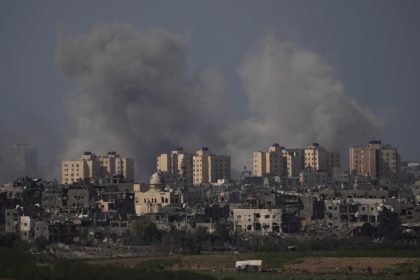Why Democracy Promotion is in the Strategic Interest of the United States
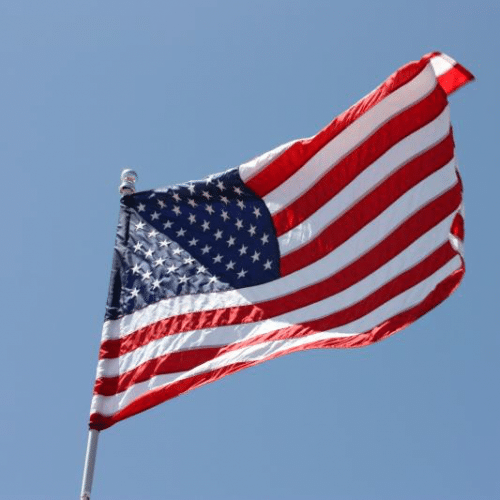
This article was originally published by Truman National Security Project.
The 2017 National Security Strategy emphasizes many themes that reflect what the administration has coined as “pragmatic realism”: a return to great power competition, the prominent placement of America First, and a focus on the military as the predominant instrument of power across the world. But while many of these themes have made appearances in previous national security strategies, there is one difference that sets the current national security strategy apart from its predecessors: a skepticism about the role of American values in U.S. foreign policy, and the complete omission of the importance of democracy promotion.
However, reducing the United States’ emphasis on a values-driven foreign policy is wrong, and contrary to the strategic interests of the United States. Democracy promotion in particular serves a key role in safeguarding U.S. interests and promoting global, long-term growth in ways fundamentally compatible with U.S. strategic interests. After all, democracies protect private property in important ways, invest in public goods, are more politically stable, make for more dependable allies, and empirically do not go to war with one another. Ultimately, a world full of democratic governments is safer, more prosperous, and more stable — all states of being that the United States has an interest in promoting.
Democracy guarantees that the public has a stake in its own institutions and government, which leads to investor confidence and growth. Since elected politicians are accountable to property owners and are held in check by an independent judiciary, democracies tend to have better mechanisms for protecting private property than their autocratic counterparts. This makes democracies a particularly attractive type of country for investors — both public and private — because checks and balances make it difficult for the state to nationalize industries. Further, private property rights protected by the legal system encourage entrepreneurship and small business development, both of which are key to a growing and modernizing economy. As a result, democracies tend to be wealthier and more economically stable than their autocratic counterparts. This is fundamentally in the interest of the United States in that both private and public investors have an interest in seeing returns on their investments, thereby potentially making countries less willing to go to war if that would require severing economic ties. Democratic institutions ensure that citizens with both economic and political power are heard.
Democracies also invest in public goods at much higher rates than autocratic governments. Because politicians must cater to the median voter, they approve policies that invest in public education and healthcare, both of which promote long-term growth and development. Public education invests in a country’s human capital, setting the stage for long-term innovation, adaptability, and advancement. Public healthcare, meanwhile, has been shown to increase overall societal productivity and well-being as people take fewer sick days, citizens are able to afford their healthcare without going bankrupt, and ultimately, the overall costs of healthcare are driven down as citizens become healthier. Productive, innovative societies are also better for the United States — innovation around the world improves global quality of life, results in more educational and vocational opportunities for Americans (both because other universities and jobs become more attractive to Americans who want to go abroad and because potential immigrants are more likely to want to stay in their own country, opening up opportunities for U.S. citizens at home), and may reduce friction between countries over resources and labor.
Democracies are also generally more politically stable because regular election cycles ensure an established process for the habitual and peaceful removal of leaders from power. Elections ensure the non-violent transition of power and reduce the need for mass protest, rioting, and revolution — which makes countries more politically stable. Further, when citizens are granted rights and protections from government abuse, enforced by an independent judiciary, they have fewer grievances against the government and are thus less able to mobilize large numbers of people to violently overthrow the regime. Revolution, while not always violent, often leads to political instability, challenges to growth, increased incentives for diversionary warand conflict, and oftentimes civil war. The externalities of civil war and international conflict then put pressure on the United States to intervene, protect human rights, and otherwise expend resources on other countries’ issues. Further, civil wars are highly destructive to institutions, human capital, and resources, and can have significant security spillover effects, increasing global risk of political instability and violent extremism.
This political stability, in addition to institutional checks and balances, makes democracies better international partners and allies in the long-term. Treaties ratified by multiple branches of government are more durable than executive agreements signed by a single leader who may be replaced within a short period of time. While democracies may be more reluctant to commit to alliances and formal security pacts, once a party to them, they are more dependable than other states with concentrated power at the executive level. These kind of durable commitments are of interest to the United States as it seeks to preserve the liberal world order; it is far more effective to ally with partners whose institutions make withdrawal from the alliance costly.
Finally, it has been empirically observed that democracies do not go to war with one another. While there is a robust debate around the exact nature of the so-called “democratic peace,” it appears that there are qualities particular to democracies that make war between them particularly unlikely: a dovish public constrains leaders’ ability to wage war, competitive elections and a free press make it easier to credibly communicate resolve to potential adversaries, consolidated democracies tend to be more wealthy and economically interdependent, like-minded people are more hesitant to wage war against one another, and so on. Regardless of the precise mechanisms, however, a world of democracies is inherently safer, more prosperous, and less likely to initiate a war against the United States — a key factor in protecting American security and interests.
The five reasons above outline why a world that subscribes to democratic values and commits particularly to democratic institutions is one that preserves and protects American security interests. Those points make the case that democracy promotion is not just a matter of exporting values, but actually furthers the national interest in a serious and substantive way.
Yet, there are a few caveats that should be noted. First, this discussion applies almost exclusively to consolidated democracies — in other words, transitional democracies exhibit many of the same security problems that autocratic societies do and may be particularly unstable or susceptible to conflict because of the fragility of their political institutions. We have learned from the past that imposing democracy on countries through the use of force, without an enormous on-the-group footprint and underlying civil society, can be disastrous for U.S. security interests and exacerbate regional security issues. While democracy promotion is in U.S. interests — and the United States should do everything in its power to strengthen democratic institutions around the world — foreign-imposed regime change rarely accomplishes its stated political goals, and more often than not only makes the problem worse.
Second, political polarization can alter many of the incentives listed above that make democracies more reliable, robust, and peaceful than other countries. Essentially, in extreme cases, political polarization can lead to autocratic backsliding. Economic inequality, political disenfranchisement, corruption, and institutional gridlock can all contribute to a society’s disillusionment with democratic institutions, leading some to favor electing strongmen who can “get things done.” The United States must do what it can to strengthen democratic institutions and promote values of equality, egalitarianism, and transparency to prevent this kind of dangerous backsliding that may result in policies contrary to U.S. interests.
For the last 70 years, the United States has championed democracy as a central American value and included it as a centerpiece of U.S. foreign policy. This was not an accident; in addition to normative judgments about the inherent value of democratic institutions, there are key strategic reasons why the United States should actively promote democratic values around the world. A world of democracies is more prosperous, more stable, and ultimately a safer place.



















